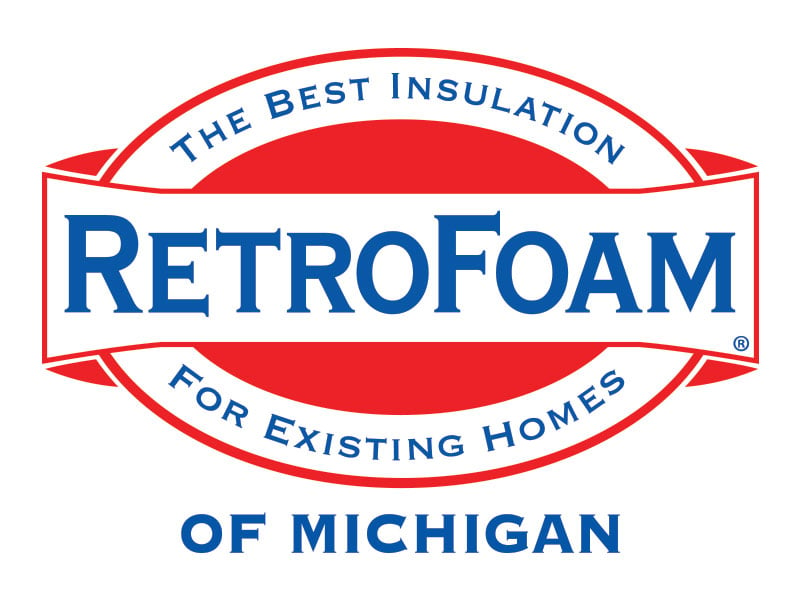Types of Energy Efficient Insulation Rebates in Michigan


You can get rebates and tax credits for all kinds of things you buy.
Have you bought new tires for your car? You could get a rebate.
Have you purchased a new energy-efficient appliance? You could get a rebate and tax credit for that too.
But did you know you can get tax credits and home insulation rebates in Michigan when you buy home insulation like foam? Depending on the scope of work that is done, you could be eligible for either a mail-in rebate or a home performance rebate from your energy provider, as well as a tax credit.
RetroFoam of Michigan has been recognized by Consumers Energy for its work to get homeowners the best rebate available to them. We were also inducted into an exclusive club after we completed more than 120 home performance projects in one year.
Our primary focus has always been to help homeowners achieve the comfort and energy efficiency they have always dreamed of. As part of that, we also want to make it easier for them, so we make a point of staying up to date on the energy-efficiency insulation rebates available in Michigan and their amounts.
During my time here at RetroFoam of Michigan, I have dealt with rebates quite a bit, so I’m going to explain what’s available and how you would qualify for them when you choose us for your foam insulation.
Energy Efficiency Rebates for Insulation for Michigan Homeowners
Rebates for home insulation are incentive programs that offer a monetary reward for completing a designated goal.
For example, energy providers offer rebates to their customers when they have certain energy-efficient upgrades done to their homes.
So, a rebate is cash in hand or money off the insulation project.
Now, let’s dive into how Michiganders could be eligible for the standard mail-in insulation rebates and home performance rebates.
Standard Mail-In Insulation Rebate
The standard mail-in insulation rebate comes into play for homeowners who only insulate one area of their home.
That one area could be the crawl space, rim joist, attic, or walls. It’s important to remember that if you don’t meet the minimum square footage required by your energy provider, you may still not be eligible for this rebate.
This rebate goes directly to the homeowner in the form of a check from their utility provider. Those providers include Consumers Energy, DTE, SEMCO, and Michigan Gas and Utilities.
As part of our contractor concierge service, we file the rebate paperwork for our homeowners, and they receive a check in the mail in about 4 to 6 weeks.
The only thing the energy provider needs for this rebate is the insulated area's square footage, the insulation used, and that the job was paid for.
The range is between $50 to $250 for the standard mail-in rebate, depending on the project's square footage.
Home Performance Insulation Rebate
The home performance insulation rebate works a little differently in a few ways.
This rebate is only available to homeowners who add insulation to at least two areas of their homes. The goal of this rebate is to make the home perform better when it comes to energy efficiency. To receive this rebate, the house has to achieve a 20 percent air seal after installing the foam.
To ensure this air seal is created, our crew performs a blower door test before the foam is installed and again after the installation. The blower door test measures the air exchange in the home, so it measures the air leaking into and out of the house.
The homeowner is given paperwork to fill out, but just like the standard mail-in rebate, we send it to the energy provider.
The other way that the home performance rebate differs from the standard mail-in is that the homeowner isn’t receiving a check. Instead, the rebate is taken directly off of the invoice for the foam insulation installation.
The rebate amount here also depends on the size of the project and varies between $400 to $1,100. This range can vary depending on whether it’s a Consumers Energy Insulation Rebate or a DTE Insulation Rebate.
Finding the Insulation Rebate for Your Project
A Michigan homeowner who adds insulation to their home can find rebates for making this energy-efficient upgrade.
It’s important to make sure the work you have done is eligible for these rebates. We recommend talking to your energy provider to get all of the details regarding available rebates.
If you decide to work with us, your project manager can explain the rebates to you and how much they are.
Related Articles
What is Home Performance with Energy Star?
Lessons Learned After Insulating Over 120 Homes for Home Performance with Energy Star
Finding Insulation Rebates to Lower the Cost of Home Insulation
About Ashley Bedtelyon
Ashley has office management experience working with customers from her previous work in childcare and the medical field and also has completed the Dale Carnegie course where she was invited back to be a coach for other students. From answering phones and calling leads to prepare invoices for installs, Ashley also processes energy rebates for homeowners and makes follow-up calls on leads, estimates, and installs. When Ashley isn’t being a Jack-of-all-trades, she is spending time with her daughter, husband, and family.


